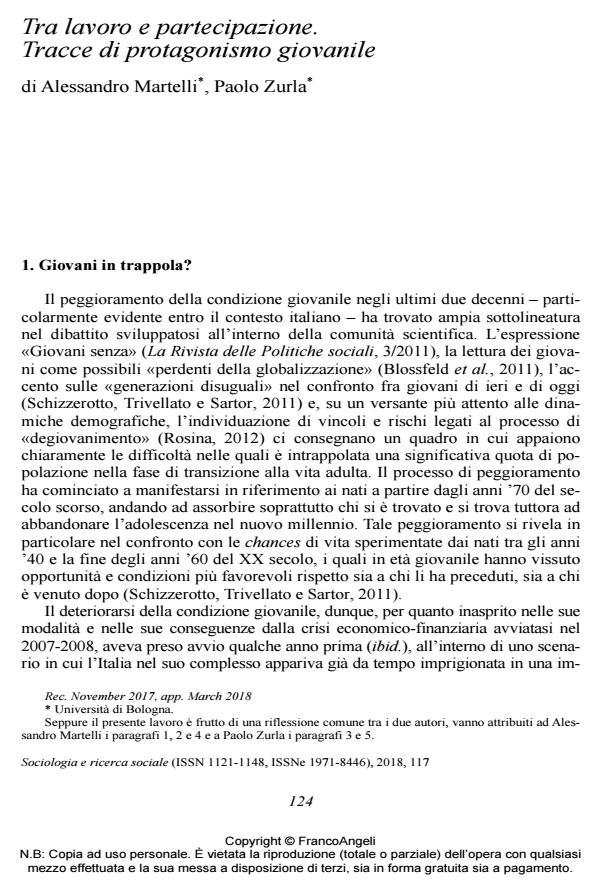Between work and participation. Signs of youth agency
Journal title SOCIOLOGIA E RICERCA SOCIALE
Author/s Alessandro Martelli, Paolo Zurla
Publishing Year 2019 Issue 2018/117
Language Italian Pages 13 P. 124-136 File size 171 KB
DOI 10.3280/SR2018-117008
DOI is like a bar code for intellectual property: to have more infomation
click here
Below, you can see the article first page
If you want to buy this article in PDF format, you can do it, following the instructions to buy download credits

FrancoAngeli is member of Publishers International Linking Association, Inc (PILA), a not-for-profit association which run the CrossRef service enabling links to and from online scholarly content.
In consequence of the increasing uncertainty and precariousness of the last decades, transition to adulthood has resulted in a more prolonged and de-standardized process. Young people are victims of a sort of entrapment with ef-fects that threaten their agency and opportunities in life. Against the background of the socio-economic crisis, non-conventional signs of youth agency seem to emerge both in the occupational and participation fields. The article takes into consideration some of the characteristic aspects of this protagonism, connecting pertinent literature to two case studies realized in Italy.
Alessandro Martelli, Paolo Zurla, Tra lavoro e partecipazione. Tracce di protagonismo giovanile in "SOCIOLOGIA E RICERCA SOCIALE " 117/2018, pp 124-136, DOI: 10.3280/SR2018-117008